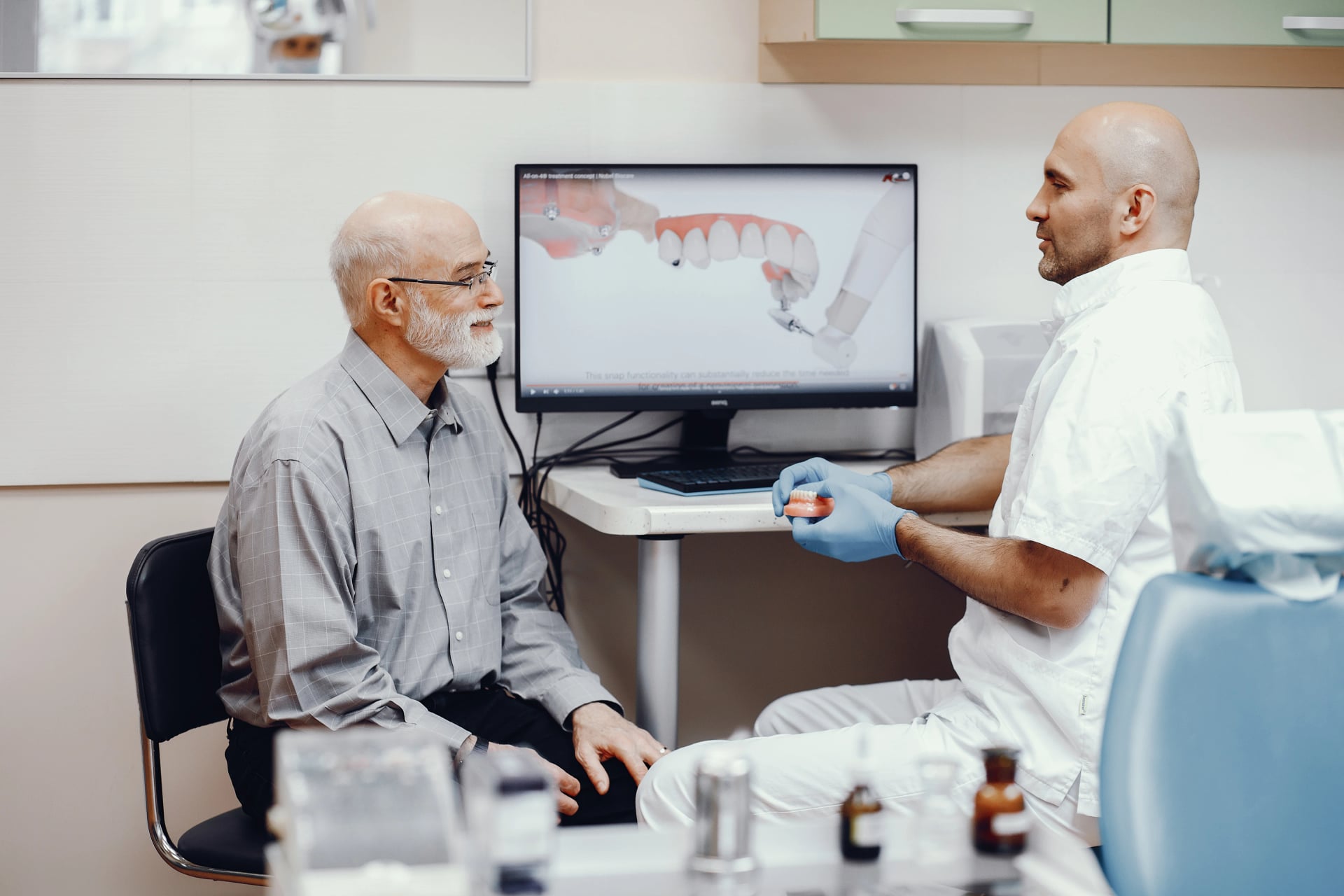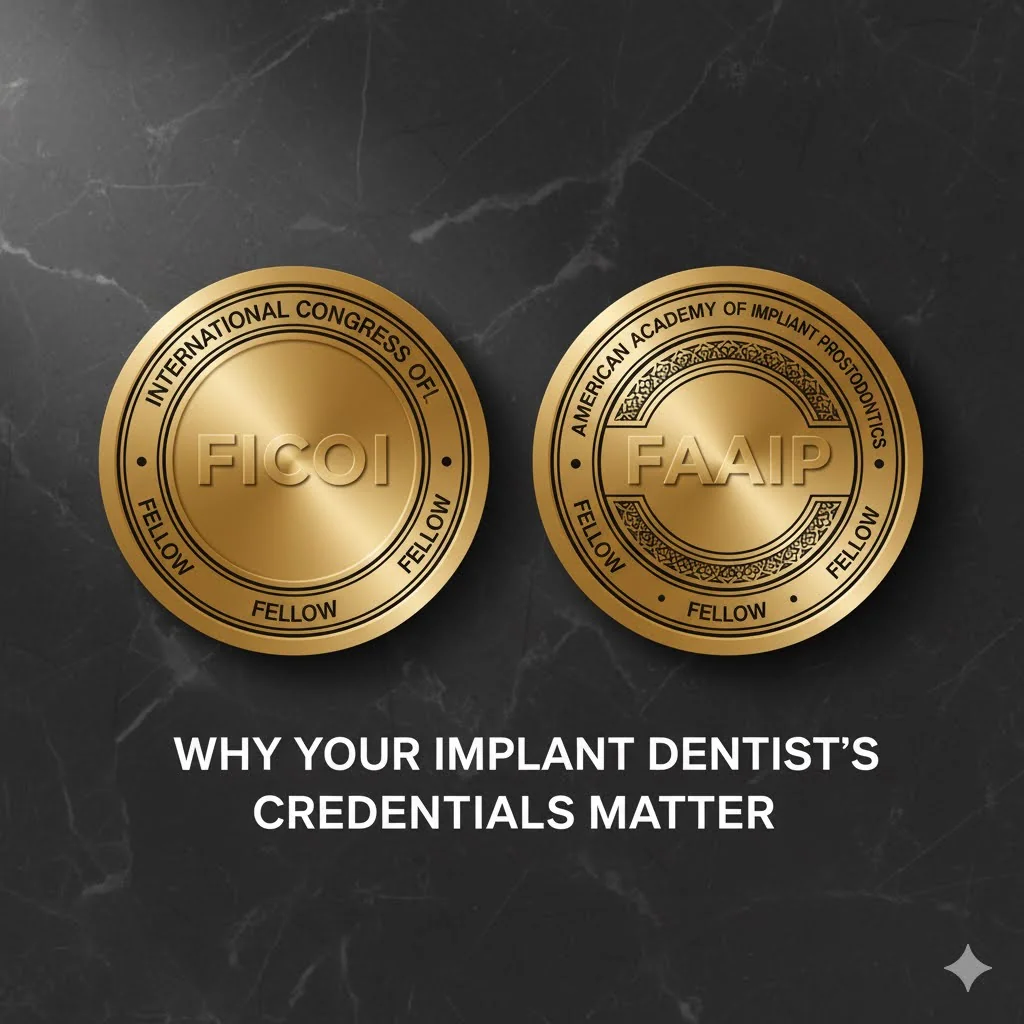Introduction: Restoring Your Confidence and Function
Losing one or more teeth can profoundly affect your daily life. It alters how you chew, how you speak, and how confidently you share your smile with the world. Consequently, deciding how to replace those missing teeth is a critical choice that will impact your quality of life for decades.
If you live in the Marlborough, MA area, you generally have two primary pathways for significant tooth replacement: Dental Implants and Dentures.
This comprehensive guide explains exactly what each option entails, the key pros and cons of both, long-term maintenance requirements, cost considerations, and how to determine which path is best suited for your unique anatomy, lifestyle, and budget. Our goal is to empower you with knowledge so you can engage in an informed discussion with your dentist.
Note: This article is informational and not a substitute for medical advice. Individual recommendations require a thorough in-person evaluation, including digital imaging and a clinical exam.
What Are Dental Implants?
Dental implants are widely considered the gold standard in modern restorative dentistry. An implant is a small, bio-compatible titanium (or occasionally zirconia) post that is surgically placed into the jawbone beneath your gums.
Once placed, a remarkable biological process called osseointegration occurs. The bone in your jaw actually grows around and fuses to the titanium post, making it a permanent part of your anatomy. This fused post acts as an artificial tooth root, providing an incredibly strong foundation for a custom-made crown, bridge, or even a full-arch prosthesis.
In everyday use, many patients report that fully restored dental implants feel, look, and function exactly like robust natural teeth. They allow for confident chewing of hard or sticky foods and clear, unrestricted speech.
What Are Dentures?
Dentures are removable prosthetic appliances designed to replace missing teeth and the surrounding soft tissue. They have been used for centuries but have benefited significantly from modern dental materials, resulting in more natural-looking and comfortable options today.
Dentures generally fall into three categories:
- Complete Conventional Dentures: Used when all of the teeth in a full arch (upper or lower) are missing. They rest directly on the gums and rely on suction or dental adhesive to stay in place.
- Partial Dentures: Used when you still have some natural teeth remaining. These usually consist of replacement teeth attached to a pink or gum-colored plastic base, held in place by a metal framework or clasps that grip your existing teeth.
- Implant-Supported Overdentures ("Snap-On" Dentures): A hybrid solution where a removable denture is secured by snapping onto two or more dental implants placed in the jaw.
While modern dentures look quite natural, they do require an adaptation period. Furthermore, because traditional dentures rest on the gums rather than stimulating the bone, the jawbone underneath will slowly atrophy (shrink) over time, meaning conventional dentures require periodic relining or replacement to maintain a proper fit.
The Critical Difference: Bone Preservation
One of the most consequential differences between implants and conventional dentures is how they interact with your jawbone.
When you chew with natural teeth or a dental implant, the forces are transmitted down into the jawbone. This stimulation essentially tells your body, "Keep this bone strong and dense because we are using it."
Conversely, because conventional dentures sit on top of the gums, they do not stimulate the underlying bone. Without stimulation, the body naturally resorbs (dissolves) the bone in that area. Over many years, this bone loss can lead to significant facial changes, often causing a "sunken" appearance in the lower third of the face, and making it increasingly difficult to wear dentures comfortably.
Because implants act like artificial roots, they provide the necessary stimulation to halt bone loss, preserving your facial structure and preventing long-term complications.
Pros and Cons Overview
Dental Implants: Pros and Cons
The Advantages:
- Fixed and Permanent: They do not slip or move. You do not take them out at night.
- Bone Preservation: They stimulate the jawbone, preventing facial collapse.
- Natural Function: They chew and feel like natural teeth. You can eat whatever you want.
- Does Not Harm Other Teeth: Unlike bridges, implants do not require grinding down adjacent healthy teeth.
The Disadvantages:
- Surgical Requirement: Placement requires a minor surgical procedure and healing time (usually 3–6 months for osseointegration).
- Anatomical Limits: They require adequate bone density. If bone is lacking, a bone graft or sinus lift may be necessary prior to placement.
- Higher Initial Cost: Implants represent a significant upfront financial investment.
Conventional Dentures: Pros and Cons
The Advantages:
- Non-Surgical: A fast, non-invasive method for replacing many teeth simultaneously.
- Lower Initial Cost: The upfront cost of a denture is decidedly lower than restoring a full arch with implants.
- Quick Aesthetic Fix: They immediately restore the appearance of a full smile.
The Disadvantages:
- Mobility and Discomfort: They can slip, click, or feel loose, especially on the lower jaw, which can cause sore spots.
- Dietary Restrictions: Hard, tough, or sticky foods (like steak or apples) can dislodge them or be difficult to chew.
- Bone Resorption: They do not prevent the jawbone from shrinking.
- Ongoing Maintenance Costs: Due to changing bone structure, they require periodic relines, adjustments, and eventual replacement.
Cost and Longevity: A Long-Term Perspective
When comparing costs, it is vital to look beyond the initial price tag.
Dentures are more affordable initially, but their lifespan is significantly shorter. Due to bone changes and wear on the acrylic teeth, most dentures need to be replaced or significantly relined every 5 to 7 years. Over a 20-year period, the cumulative cost of relines, replacements, and daily adhesives can approach the cost of implant therapy.
Dental Implants carry a higher initial investment. The cost depends heavily on factors like the need for bone grafting, the number of implants, and the type of restoration (single crown vs. full-arch All-on-4). However, with meticulous home care and regular professional maintenance, the titanium implant post can last a lifetime. Many dental plans now cover a portion of the crowns or prostheses placed on implants, and practices like Innova Smiles offer transparent financing options to make this permanent solution accessible.
Who Should Consider Each Option?
You May Be an Ideal Candidate for Implants If:
- You desire a permanent, fixed solution that feels indistinguishable from your natural teeth.
- You are in overall good health and can undergo a routine dental extraction or minor surgery.
- You have sufficient jawbone density (or are willing to undergo grafting if necessary).
- You want to eat without restrictions and speak with total confidence.
- You view your dental health as a long-term investment.
You May Lean Toward Dentures If:
- You are seeking a lower upfront financial commitment.
- You want a fast solution without waiting months for surgical healing.
- You have medical conditions that contraindicate oral surgery or impair healing (such as poorly controlled severe diabetes).
- You have experienced catastrophic bone loss that makes grafting impossible or highly unpredictable.
The Middle Path: Implant-Supported Overdentures
If you struggle with the looseness of a conventional lower denture but cannot fund a fully fixed implant bridge, an implant-supported overdenture is an extraordinary compromise. By placing just two to four implants in the lower jaw, your removable denture can "snap" securely into place. It remains removable for cleaning, but the implants provide rock-solid stability during eating and speaking.
Seeking Expert Guidance in Marlborough
The decision between implants and dentures is highly personal. However, ensuring you are under the care of a clinician with advanced training is paramount.
At Innova Smiles, our Lead Dentist, Dr. Ambereen Fatima, holds esteemed Fellowships with the International Congress of Oral Implantologists (FICOI) and the American Academy of Implant Prosthodontics (FAAIP). Her specialized training, paired with our in-house 3D CBCT imaging technology, allows for exceptionally precise, safe, and successful implant placements right here in Marlborough.
Ready to explore your options for a complete smile? Contact Innova Smiles today to schedule a comprehensive evaluation. We will review your 3D imaging, discuss your goals, and help you choose the path that restores your confidence for good.




